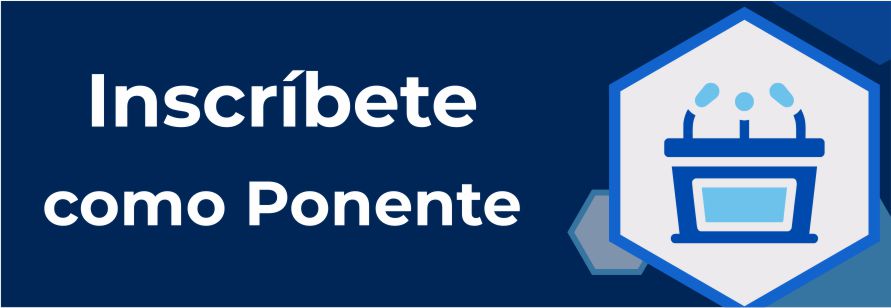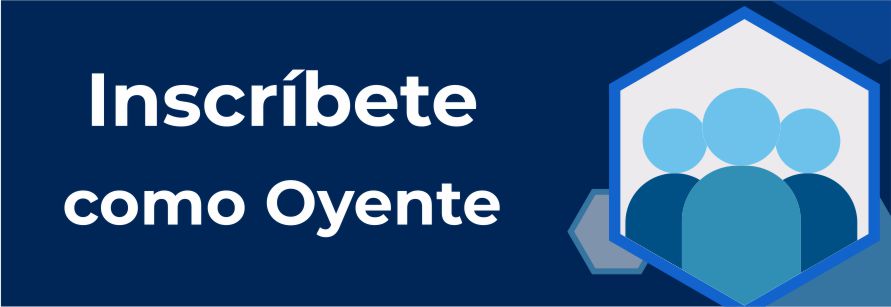Inteligencia Artificial Generativa en estudiantes de Educación Media Superior en México. El uso de ChatGPT en estudiantes del Centro de Enseñanza Técnica Industrial (CETI)
Resumen
La adopción de tecnologías emergentes en la educación ha transformado profundamente los procesos de enseñanza y aprendizaje, especialmente en la Educación Superior y Media Superior (EMS). Este estudio explora la aceptación y el uso de ChatGPT entre los estudiantes del Centro de Enseñanza Técnica Industrial (CETI) a través del modelo de la Teoría Unificada de Aceptación y Uso de la Tecnología (UTAUT) y el Modelo Complementario de Expectativa de Desempeño (MCER). Utilizando un enfoque cuantitativo, se recopilaron datos a través de encuestas administradas a 441 estudiantes y se analizaron utilizando el Modelo de Ecuaciones Estructurales de Mínimos Cuadrados Parciales (PLS-SEM). El estudio evalúa los factores clave que influyen en la intención de usar ChatGPT, incluida la expectativa de desempeño, la expectativa de esfuerzo, la influencia social y las condiciones facilitadoras, junto con variables del MCER, como el rendimiento académico, la sobrecarga académica y las percepciones éticas. Los resultados destacan los determinantes significativos de la adopción de ChatGPT, enfatizando la interacción entre las consideraciones tecnológicas y éticas. Los resultados ofrecen información sobre la integración de ChatGPT en las prácticas educativas y contribuyen a comprender las implicaciones más amplias de la inteligencia artificial en los entornos académicos. Esta investigación proporciona datos valiosos para orientar la formulación de políticas, el diseño curricular y la implementación estratégica de herramientas de IA en la educación.
Descargas
Citas
Acosta-Enriquez, B. G., Arbulú Ballesteros, M. A., Huamaní Jordan, O., López Roca, C., & Saavedra Tirado, K. (2024). Analysis of college students’ attitudes toward the use of ChatGPT in their academic activities: Effect of intent to use, verification of information and responsible use. BMC Psychology, 12, 255. https://doi.org/10.1186/s40359-024-01764-z
Bleumink, A. G., & Shikhule, A. (2023). Keeping AI Honest in Education: Identifying GPT-generated text. Edukado AI research.
Bryman, A. (2012). Social research methods (4th ed.). Oxford University Press.
Cochran, W. G. (1977). Sampling Techniques (3rd ed.). New York: John Wiley & Sons.
Cohen, L., Manion, L., & Morrison, K. (2013). Research methods in education (7th ed.). Routledge.
Cotton, D., Cotton, P., & Shipway, J. R. (2023). Chatting and Cheating. Ensuring academic integrity in the era of ChatGPT. In EdArXiv. https://doi.org/10.35542/osf.io/mrz8h
Creswell, J. W. (2014). Research design: Qualitative, quantitative, and mixed methods approaches (4th ed.). SAGE Publications.
Cronbach, L. J. (1951). Coefficient alpha and the internal structure of tests. Psychometrika, 16(3), 297-334.
Fornell, C., & Larcker, D. F. (1981). Evaluating structural equation models with unobservable variables and measurement error. Journal of Marketing Research, 18(1), 39-50.
García-Peñalvo, F. J. (2023). The perception of Artificial Intelligence in educational contexts after the launch of ChatGPT: Disruption or Panic? Ediciones Universidad de Salamanca.
http://repositorio.grial.eu/handle/grial/2838
George, D., & Mallery, P. (2016). IBM SPSS Statistics 23 Step by Step: A Simple Guide and Reference. Routledge.
Goldie, J. G. S. (2016). Connectivism: A knowledge learning theory for the digital age? Medical Teacher, 38(10), 1064–1069. https://doi.org/10.3109/0142159X.2016.1173661
Gortaire Díaz, D., Beltrán Moreno, M., Mora Herrera, E., Reasco Garzón, B., & Rodríguez Torres, M. (2023). Constructivismo y conectivismo como métodos de enseñanza y aprendizaje en la educación universitaria actual. Ciencia Latina Revista Científica Multidisciplinar, 6(6), 14046–14058. https://doi.org/10.37811/cl_rcm.v7i1.4672
Habibi, A., Muhaimin, M., Danibao, B. K., Wibowo, Y. G., Wahyuni, S., & Octavia, A. (2023). ChatGPT in higher education learning: Acceptance and use. Computers and Education: Artificial Intelligence, 5, 100190. https://doi.org/10.1016/j.caeai.2023.100190
Haleem, A., Javaid, M., & Singh, R. P. (2022). An era of ChatGPT as a significant futuristic support tool: A study on features, abilities, and challenges. BenchCouncil Transactions on Benchmarks, Standards and Evaluations, 2(4), 100089.
https://doi.org/10.1016/j.tbench.2023.100089
Haluza, D., & Jungwirth, D. (2023). Artificial Intelligence and ten societal megatrends: A GPT-3 case study. In Preprints. https://doi.org/10.20944/preprints202301.0474.v1
Hasselqvist, H. (2023). Students' acceptance and use of ChatGPT in academic settings. Journal of Educational Research, 15(2), 98-115. https://doi.org/10.1007/s11162-023-09689-5
Jalil, S., Rafi, S., LaToza, T. D., Moran, K., & Lam, W. (2023). ChatGPT and software testing education: Promises & perils. In arXiv [cs.SE]. http://arxiv.org/abs/2302.03287
Martínez Ávila, M., & Fierro Moreno, E. (2018). Aplicación de la técnica PLS-SEM en la gestión del conocimiento: un enfoque técnico práctico. RIDE Revista Iberoamericana para la Investigación y el Desarrollo Educativo, 8(16), 130-164.
https://doi.org/10.23913/ride.v8i16.336
Mattar, J. (2018). Constructivism and connectivism in education technology: Active, situated, authentic, experiential, and anchored learning. RIED Revista Iberoamericana de Educación a Distancia, 21(2), 201. https://doi.org/10.5944/ried.21.2.20055
Menon, D., & Shilpa, K. (2023). “Chatting with ChatGPT”: Analyzing the factors influencing users' intention to use the Open AI’s ChatGPT using the UTAUT model. Heliyon, 9(11), e20962.
https://doi.org/10.1016/j.heliyon.2023.e20962
Mhlanga, D. (2023). Open AI in Education, the Responsible and Ethical Use of ChatGPT Towards Lifelong Learning. Wits University Press. https://doi.org/10.2139/ssrn.4354422
Morales-Chan, M. A. (2023). Explorando el potencial de Chat GPT: Una clasificación de Prompts efectivos para la enseñanza. GES Department, Galileo University.
http://biblioteca.galileo.edu/tesario/handle/123456789/1348
Neumann, M., Rauschenberger, M., & Schön, E.-M. (2023). “We Need To Talk About ChatGPT”: The Future of AI and Higher Education. https://doi.org/10.25968/opus-2467
Ocaña-Fernández, Y., Valenzuela-Fernández, L. A., & Garro-Aburto, L. L. (2019). Inteligencia artificial y sus implicaciones en la educación superior. Propósitos y Representaciones, 7(2).
https://doi.org/10.20511/pyr2019.v7n2.274
Ouyang, F., & Jiao, P. (2021). Artificial intelligence in education: The three paradigms. Computers and Education: Artificial Intelligence, 2(100020), 100020.
https://doi.org/10.1016/j.caeai.2021.100020
Popper, K. (2002). The logic of scientific discovery. Routledge.
Qadir, J. (2022). Engineering education in the era of ChatGPT: Promise and pitfalls of generative AI for education. https://doi.org/10.36227/techrxiv.21789434.v1
Romero-Rodríguez, J.-M., Ramírez-Montoya, M.-S., Buenestado-Fernández, M., & Lara-Lara, F. (2023). Use of ChatGPT at university as a tool for complex thinking: Students' perceived usefulness. Journal of New Approaches in Educational Research, 12(2), 323-339.
https://doi.org/10.7821/naer.2023.7.1458
Rudolph, J., Tan, S., & Tan, S. (2023). ChatGPT: Bullshit spewer or the end of traditional assessments in higher education? Journal of Applied Learning & Teaching, 6(1).
https://doi.org/10.37074/jalt.2023.6.1.9
Chen Shih , J. (2025). Relación entre inteligencia emocional y rendimiento académico en estudiantes de nivel superior de Arequipa en la postpandemia . Ciencia Y Reflexión, 4(2), 648–667. https://doi.org/10.70747/cr.v4i2.299
Alcántara , R. L. (2025). Acompañamiento Pedagógico Estrategia Colaborativa. Ciencia Latina Revista Científica Multidisciplinar, 9(3), 7881-7886. https://doi.org/10.37811/cl_rcm.v9i3.18412
Agila Mocha, R. J., Vivanco Ureña, C. I., León Bravo, F. E., & Reyes Carrión , J. P. (2025). Software Educativos para el Proceso de Enseñanza Aprendizaje de Matemáticas en Bachillerato. Ciencia Y Reflexión, 4(2), 1341–1369. https://doi.org/10.70747/cr.v4i2.334
Chen Shih , J. (2025). Relación entre inteligencia emocional y rendimiento académico en estudiantes de nivel superior de Arequipa en la postpandemia . Ciencia Y Reflexión, 4(2), 648–667. https://doi.org/10.70747/cr.v4i2.299
Quelal Morejón , C. E., Rogel Calderón , A. S., Loaiza Dávila , L. E., & Maqueira Caraballo, G. D. L. C. (2025). Los juegos predeportivos: una alternativa para la inclusión de estudiantes con Trastorno del Espectro Autista (TEA) a la clase de Educación Física. Arandu UTIC, 12(2), 2169–2189. https://doi.org/10.69639/arandu.v12i2.1055
Guadalupe Beltrán , E. S., Palomeque Zambrano, J. Y., & Loor Avila, B. A. (2025). Desafíos de la Educación Superior en Contextos Híbridos: Análisis de las Prácticas Docentes en la Universidad Estatal de Milagro durante el Periodo Académico 2025. Revista Veritas De Difusão Científica, 6(2), 1259–1281. https://doi.org/10.61616/rvdc.v6i2.685
Lozano Flores, L. D. (2025). Gamificación en el aprendizaje de unidades de tiempo: el caso de Sims 4. Emergentes - Revista Científica, 5(2), 68–86. https://doi.org/10.60112/erc.v5.i1.373
Velásquez Torres, A. O., González Bautista, G., Neira Vera , M., & García Montañez , A. M. (2025). Formación Docente en la Resolución Pacífica de Conflictos: Diagnóstico de una Necesidad Curricular en Colombia. Estudios Y Perspectivas Revista Científica Y Académica , 5(2), 2936–2952. https://doi.org/10.61384/r.c.a.v5i2.1329
Duarte Gahona, Y. K. (2025). Aplicación de la Inteligencia Artificial en la Personalización del Aprendizaje para Estudiantes con Necesidades Educativas Especiales . Revista Científica De Salud Y Desarrollo Humano , 6(2), 33–53. https://doi.org/10.61368/r.s.d.h.v6i2.575
Sampieri, R. H., Fernández, C. F., & Baptista, P. (2014). Metodología de la investigación (6ª ed.). McGraw-Hill.
Siemens, G. (2005). Connectivism: A learning theory for the digital age. International Journal of Instructional Technology & Distance Learning, 2, 3-10.
Srinivasan, V. (2022). AI & learning: A preferred future. Computers and Education: Artificial Intelligence, 3(100062), 100062. https://doi.org/10.1016/j.caeai.2022.100062
Susnjak, T. (2022). ChatGPT: The end of online exam integrity? In arXiv [cs.AI].
http://arxiv.org/abs/2212.09292
Suzianti, Amalia & Budiono, Patrick & Fathia, Safira Nurul & Kaniaswari, Rheinanda. (2023). Rehumanizing Smart Technology: Analysis of Chatgpt Adoption in Educational Institutions in Indonesia. 10.2139/ssrn.4648593.
Swiecki, Z., Khosravi, H., Chen, G., Martinez-Maldonado, R., Lodge, J. M., Milligan, S., Selwyn, N., & Gašević, D. (2022). Assessment in the age of artificial intelligence. Computers and Education: Artificial Intelligence, 3(100075), 100075.
https://doi.org/10.1016/j.caeai.2022.100075
Tapalova, Olga & Zhiyenbayeva, Nadezhda & Gura, Dmitry. (2022). Artificial Intelligence in Education: AIEd for Personalised Learning Pathways. Electronic Journal of e-Learning. 20. 639-653. 10.34190/ejel.20.5.2597.
Tavakol, M., & Dennick, R. (2011). Making sense of Cronbach's alpha. International Journal of Medical Education, 2, 53-55.
Tiwari, C. K., Bhat, M. A., Khan, S. T., Subramaniam, R., & Khan, M. A. I. (2023). What drives students toward ChatGPT? An investigation of the factors influencing adoption and usage of ChatGPT. Interactive Technology and Smart Education, ahead-of-print(ahead-of-print).
https://doi.org/10.1108/ITSE-04-2023-0061
Venkatesh, V., Morris, M. G., Davis, G. B., & Davis, F. D. (2003). User acceptance of information technology: Toward a unified view. MIS Quarterly, 27(3), 425-478.
Venkatesh, V., Thong, J. Y. L., & Xu, X. (2012). Consumer acceptance and use of information technology: Extending the unified theory of acceptance and use of technology. MIS Quarterly, 36(1), 157-178.
Yifan, W., Mengmeng, Y., & Omar, M. K. (2023). “A Friend or A Foe” Determining Factors Contributed to the Use of ChatGPT among University Students. International Journal of Academic Research in Progressive Education and Development, 12(2).
Zhang, M., & Li, J. (2021). A commentary of GPT-3 in MIT Technology Review 2021. Fundamental Research, 1(6), 831–833. https://doi.org/10.1016/j.fmre.2021.11.011
Derechos de autor 2025 Luis César Torres Nabel , Leonardo Ismael Basilio Rizo

Esta obra está bajo licencia internacional Creative Commons Reconocimiento 4.0.













.png)




















.png)
1.png)


